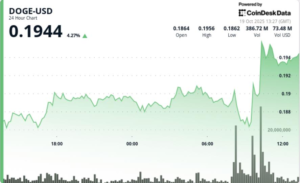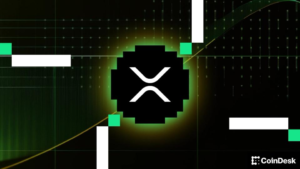The Saga of Debanking and Its Impact on the Crypto Landscape in the 21st Century
The last few years in U.S. finance have prominently featured a controversial chapter known as “debanking,” significantly impacting the crypto industry. This process saw many companies—from crypto startups to larger, regulated banks facing abrupt terminations of their banking services. The motivations behind these actions were often shrouded in vague high-risk assessments, and many affected entities received no clear explanations at all. According to 2024 data from the Alternative Investment Management Association (AIMA), a staggering 98% of crypto-focused hedge funds that faced account closures were never provided a justification. Dubbed “Operation Choke Point 2.0,” this crackdown reflected a broader governmental approach toward politically misaligned sectors.
At the heart of Operation Choke Point 2.0 was a systematic effort by regulatory bodies to limit access to the banking system for crypto businesses, often without justification. Numerous firms grew accustomed to being denied services based solely on ambiguous “high-risk” flags. The implications of this were considerable: businesses found themselves cut off from primary financial services, while many prominent figures, like Caitlin Long, founder of Custodia Bank, argued that such actions stunted innovation and drove practices into shadow networks. Here, the very values of economic freedom were seemingly threatened by overly cautious policies reflecting past financial collapses, such as those of FTX and Celsius.
The Turning Point: President Trump’s Executive Order
Fast forward to August 7, 2025, when President Trump announced an executive order titled “Guaranteeing Fair Banking for All Americans.” This landmark guideline aimed to prevent any politicized or unlawful debanking, advocating that all lawful businesses deserve banking services. By design, the order sidestepped explicit mentions of crypto yet laid the groundwork for restoring access to banking facilities for many companies sidelined during the Operation Choke Point phase. In a notable pivot, the Small Business Administration (SBA) was placed in a supervisory role, ahead of other regulatory bodies like the Federal Reserve and the Office of the Comptroller of the Currency.
The appointment of Kelly Loeffler, an outspoken Bitcoin advocate and former Senator, as the head of the SBA was indicative of intended enforcement of the new policies. Caitlin Long underscored the gravity of the move, suggesting that banks refusing service to legitimate crypto firms would now be held accountable—advancing the perception that the new order might finally end the era of unwarranted debanking. However, as history shows, executing new regulations tends to encounter numerous hurdles.
Navigating the New Banking Landscape
In the months following the executive order, banks and compliance teams were thrown into a whirlwind of reassessment. While industry representatives expressed their gratitude towards the administration for prioritizing banking access, practical challenges remained. Many establishments remained hesitant, requiring firms to undergo exhaustive compliance audits before even considering reinstating accounts. The legacy of earlier scandals meant that cautiousness still pervaded the banking industry, marking a departure from the more accessible landscape promised by the new order.
Amid regulatory uncertainty, Custodia Bank emerged as a focal point in the transition from debanking to “rebanking.” The institution was built on bridging traditional banking and digital assets yet faced significant hurdles, including a high-profile lawsuit against the Federal Reserve, highlighting the complexities of gaining banking privileges for crypto firms. Long’s criticisms of political biases further illustrated how intertwined politics and finance had become, with unresolved issues still prominent since the new executive order’s implementation.
Shifting Conversations Toward Financial Rights
Despite the initial challenges, early signs of change have begun to emerge. Small to medium-sized banks, alongside a few crypto-native banking services, are beginning to embrace digital assets once more, providing onboarding and compliance services that were unimaginable months prior. The conversation is evolving beyond mere access to a more profound contemplation of financial rights. The capacity to deny a lawful business service raises ethical concerns about economic freedom, a topic relevant to not just crypto but also sectors like cannabis, firearms, and political advocacy.
Indeed, the overarching narrative of debanking has broader implications that connect diverse industries facing similar challenges—these debates underscore fundamental questions about economic liberties and governmental overreach, echoing across various political lines. As businesses push back against exclusion, a more inclusive framework for financial services may gradually take shape.
Looking Ahead: Hope Amid Regulatory Tensions
While the executive order presents a significant legal instrument for crypto companies to challenge resistance from banks, the path to reversing the previous trend is fraught with complexity. The independent oversight brought by the SBA is a crucial step toward better accountability, signaling that regulatory change is not merely desired, but enforced at a high level. However, until the accounts of wrongfully debanked firms are reinstated, the continued tension between innovation and risk aversion will linger.
Optimistically, there is hope for a future where access to the banking system is dictated by legal principles rather than political dynamics. The prospect of a more equitable banking landscape brings renewed possibilities for the crypto sector and other previously sidelined industries. As Caitlin Long aptly noted, the efficacy of the recent executive order will largely be measured by whether those financial networks that once severed ties with Custodia Bank are willing to restore access, allowing the regulatory and business landscapes to flourish in tandem.
In conclusion, while the saga of debanking reflects deeply ingrained challenges within the financial system, it also serves as an opportunity for reflection and reform. The interplay between technology, finance, and regulation will continue to shape the future, and the crypto community is poised to play a significant role in this evolving narrative.

















